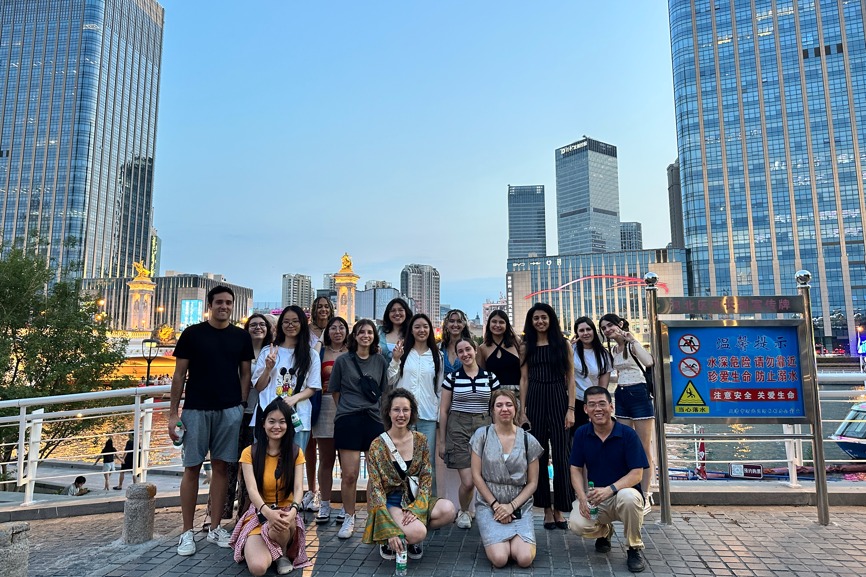What to know about China's 'two sessions'

BEIJING -- It is early March, which in China typically signals the start of the annual "two sessions" political season.
So what are the "two sessions"?
The "two sessions" are the annual meetings of China's top legislature, the National People's Congress (NPC), and the top political advisory body, the National Committee of the Chinese People's Political Consultative Conference (CPPCC).
Both bodies serve five-year terms and hold a plenary session each year. The current 14th NPC has nearly 3,000 deputies, while the 14th CPPCC National Committee has over 2,000 members.
The NPC is the highest state organ of power. That means in addition to its duty as the top legislature, it wields the power to elect national leaders, and approve government budgets and national development plans, among others.
The CPPCC serves as an important institution of CPC-led multiparty cooperation and political consultation. It is a specialist consultative body in China's whole-process people's democracy. Its members advise on major national policies and key issues spanning economic, political, cultural, social and ecological development.
The annual sessions of these two bodies usually run in parallel and take place around the same time, which is why they are collectively known as the "two sessions." This year, the sessions of the NPC and the CPPCC National Committee are scheduled to open on March 5 and 4, respectively.
What are the major issues at the "two sessions"?
The first is the annual growth target. The figure, set to be unveiled in the government work report at the start of the NPC session, is among the most anticipated topics every year.
Alongside the GDP target, the government work report is expected to outline other key economic indicators, including the deficit-to-GDP ratio and inflation target. It will also set development priorities for the year.
A plan for national economic and social development of the year, as well as the government budgets, will also be reviewed. These provide a clear picture of China's policy priorities, development goals, and fiscal strategies.
During its annual session, the NPC also enacts or amends laws, particularly those of significant importance. These include the Constitution, the Civil Code, the Supervision Law, and the Foreign Investment Law.
This year, lawmakers will deliberate a draft revision to the Law on Deputies to the National People's Congress and Local People's Congresses at All Levels, marking its fourth amendment since its enactment in 1992.
The annual legislative plan will also be announced as lawmakers review the work report of the NPC Standing Committee. Additionally, the heads of the Supreme People's Court and the Supreme People's Procuratorate will separately deliver their work reports, detailing the performance of the judicial and prosecutorial bodies.
Senior government officials will also meet the press on the sidelines of the "two sessions," with a highly anticipated event being the foreign minister's press conference. This event typically outlines China's positions and policies on foreign affairs.
- Math labs unveiled in 2025 World AI conference
- Shi Yongxin under probe for alleged criminal offenses
- Seal carving exhibition opens for Beijing Central Axis' first heritage anniversary
- Hawaiian students and teachers experience Hainan culture
- Search underway after van goes missing in North China
- Pioneering HIV/AIDS prevention drug launched in Hainan




































